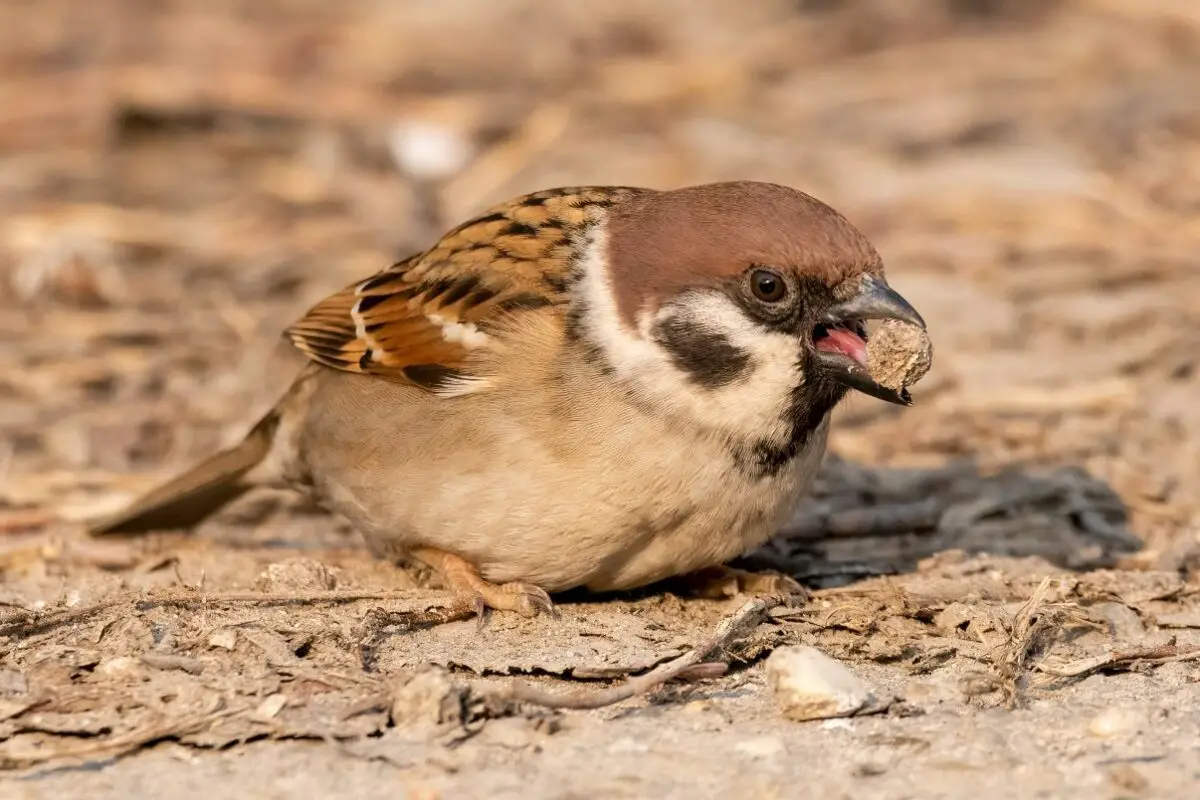One fascinating avian behavior has aroused the interest of scientists and enthusiasts – the ingestion of rocks.
Did you know that birds aren’t the only animals that consume rocks? Besides birds, crocodiles, alligators, sea lions, and seals are also known to swallow stones. Paleontologists believe that this behavior goes back to when dinosaurs were alive!
Is this normal behavior? Can a bird’s stomach digest rocks? Why would birds find it necessary to ingest these unappealing food sources?
Swallowing rocks is not only natural; it’s a necessity to ensure the birds’ survival. These stones are called gastroliths and play an essential role in grinding food. This behavior is more common in birds that feed primarily on seeds, plants, and fruits.
Table of Contents
Keep reading, as we’ll share everything you need to know about the topic. By the end of the article, you’ll find yourself appreciating how smart birds must be to learn such complex adaptations that help them survive!

Why Do Birds Eat Rocks?
First things first, birds do not actually eat rock, as in they do not have any nutritional benefits from them. Instead, they have the intrinsic need to swallow stones because this facilitates digestion. The rocks they ingest are scientifically called gastroliths.
As you probably already know, birds do not have teeth, so they swallow the food source whole unless they cannot break it down with their beaks. By using their tongues, the birds send the food down into the stomach through the pharynx and the esophagus.
Once the food reaches the first chamber of the stomach, the proventriculus or the glandular stomach, it starts being digested. The proventriculus produces hydrochloric acid and digestive enzymes that play an important role in digestion.
However, the proventriculus is not responsible for grinding the food. This falls in the hands of the second chamber of the stomach called the gizzard, ventriculus, or the mechanical stomach. If birds swallow rocks, that’s where they’ll prove their worth.
The gizzard is basically the bird’s teeth. It is made of highly tough muscles, and its purpose is to grind various types of food that aren’t easily digested. The rocks the birds swallow help the gizzard muscles grind the food.
As such, stones do not only help grind food. They also ensure that all the nutrients are absorbed and distributed throughout the body. The better the food grinding, the more efficient the nutrient absorption.
Do Rocks Stay in The Bird’s Stomach?
The rocks do not remain in the bird’s stomach. The proventriculus’ acidic environment weakens the stones, and subsequently, they are ground into tiny pieces during the grinding process occurring in the gizzard.
As such, when the rocks are tiny enough, they will move through the small intestine and the rest of the digestive system and are eventually eliminated from the body.
What Kind of Birds Eat Rocks?
Gastroliths are more common in birds that eat plants, nuts, and seeds because they are difficult to break down. Birds that feed primarily on insects and bugs do not typically require gastroliths to break them down in the gizzard.
However, some insectivorous birds have been observed swallowing stones as well. Keep reading to discover which!
1.Ostriches
Ostriches feed primarily on shrubs, seeds, fruit, and grass. As such, they are renowned for regularly consuming rocks. The truly curious thing about this behavior is that the rocks ostriches ingest are huge!
They’ve been observed consuming stones exceeding 10 cm (3.9 in) long! Studies have shown that up to 45% of an ostrich’s gizzard consists of rocks.
2. Chickens
Chickens also eat small rocks that end up in their gizzards. They are omnivores and feed primarily on fruits, grains, vegetables, plants, and occasionally insects and earthworms. As such, rocks are a must to digest the tough food material.
Scientists argue that domestic chickens fed on whole grains need to have access to small stones, whereas those fed on commercially prepared food can digest the food without additional help.
3. Pigeons
Although pigeons occasionally eat insects and spiders, they prefer delighting in fruit and grain meals. Studies show they prefer corn, oats, cherries, grass, and plants, like poison ivy and knotweed. Alongside these, they often swallow pebbles that facilitate digestion.
4. Nightjars
The members of the Caprimulgidae family are primarily insectivorous. They feed on moths, beetles, dragonflies, and cockroaches. If we were to guide ourselves by the rules, we’d say that they shouldn’t require any pebbles to grind the ingested food.
However, a study shows otherwise. Not all insects and bugs are easy to digest, after all! Scientists suggest that the members of the nightjar family feel the need to swallow stones to grind the chitinous beetle body.
This behavior has been proven in chuck-will’s-widow (Antrostomus carolinensis), Eastern whip-poor-will (Antrostomus vociferus), and common pauraque (Nyctidromus albicollis)
5. Ducks
Since ducks are omnivorous and feed both on plants and insects, they may occasionally swallow some stones that facilitate digestion.
Wild ducks, like mallard ducks, feed primarily on gastropods, insects, arthropods, and crustaceans, so pebbles may be required even for the digestion of these food sources, as many have a tough body; that is, if we guide ourselves by the theory proposed in the study mentioned above.
